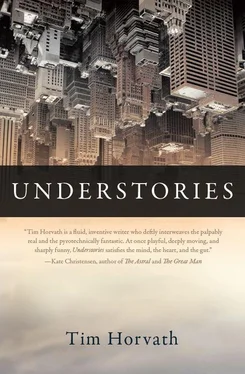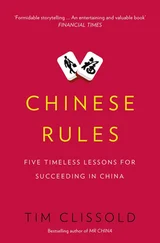“I think I can get ahold of some fan mail from some readers,” I tried. She thought I was kidding. “Yes, well, bring in whatever reviews you have.” In that moment, I made a mental vow not to be so slavishly bound to the serendipities and stratagems of the marketplace when I had the opportunity, to seek out the obscure and the overlooked.
The copy I brought in wound up on the shelf. That was okay — at that time, my dad didn’t need the $14.95, plus shipping and handling, that he was charging for it, but years later, sitting in his hospital room, I thought, Medicare and health insurance notwithstanding, we could both use it now.
In that very hospital room, I was caught red-handed for never having read Spelos. One day I was confronted by, of all people, a nurse named Désirée, to whom my father had apparently talked about the book. She was making small talk with me, a better diversion than the paper, while he was asleep one day, and she was tending to him, cleaning, et cetera.
“So, is it true he’s written a book?” She was wise to confirm, as the greatest, most jarring postoperative complication had been a form of delirium. His connection with reality came and went unpredictably, and of course there was no mechanism yet sensitive enough to detect it, unlike the more autonomic functions.
“Indeed it is,” I said. “He’s not making that up.”
“So how does it feel to be the son of a writer?”
“Oh,” I said. “It’s an honor, I suppose.”
She smiled. “Tell me about the book he’s written again?”
I led with the standard line, but she wasn’t going anywhere. She scrubbed his arm.
“Well, what about caves, then, if not the actual physical caves?”
I stumbled. I think I stammered something about the deeper meaning in caves. Something about going deeper, the way you could venture into caves. I felt as though among the machines in the room there was a bullshit detector whose needle was flailing in the red zone.
“Hmmm, sounds interesting,” she murmured, cocking an eyebrow. It was unmistakable — she knew that I was a cheat. That night, I yanked it almost angrily off the shelf where it had been gathering dust; people always expect a librarian’s home shelves will somehow be immune to residue, and speech immune to clichés, but neither is the case. Thus I began to plow through it. One hundred and thirty-seven pages in a matter of hours, and the sense that my father’s soul had once been, perhaps still was, magma, lit and surging.
The next time I was there, another nurse was on call, but about a week later I overlapped with Désirée again. “Hello,” I said.
My father was conscious now. He did not speak much, for he couldn’t, but his whisper still had a robustness to it.
“Hey,” I said. “About my father’s book, you know, that we were talking about last time?”
“Mmmmm.”
“Since you expressed curiosity,” I said, “I brought a copy. In case you were interested in reading it.” It was checked out under my own name from the Biltchrist Public Library.
My father spotted as much immediately. He said, “You check out library? Your ?” He left out words that he felt he didn’t need.
“I did, I did,” I said.
“What if someone needs?” he said.
I couldn’t quite gauge where he was vis-à-vis reality. I said, “That’s true, but it will be due back in three weeks.” I gestured to Désirée. “And I’m sure Désirée won’t hang on to it longer than that.” She nodded in affirmation. I didn’t have the heart to tell him that as far as I knew, the book had never left the library. Perhaps it had, but I certainly had never checked it out to anyone.
A few minutes went by. Then he squinted at me. “What is it you do. . library?”
“I’m the Director of Circulation,” I said.
He paused for a moment, stared out at the wall across from the bed, from where sometimes the Hula-Hoop girl emerged. She was nowhere near now. Then he asked a question I was not quite expecting, yet somehow dreading. “Who else checked it out? When?”
It was indeed one of the older books, old enough that it still had the pocket in the back where a card had once designated the due dates of the book. Any book up until a certain point wore its history on its sleeve, its record of encounters, its promiscuity or chasteness. Only in high school libraries was there an actual signature; for public libraries, a date stamp did the trick. I peered in the pocket, just to be sure. Those cards had been discarded with the advent of the computerized system. For a period of time, those records had been recorded and archived electronically, but after the Patriot Act, many librarians, myself included, were wary about this government — I am tempted to use the word regime —meddling in the privacy of our patrons. We’ve felt tested by this possibility: we’ve become versed in the Privacy Act to an unprecedented degree, and I know many of us who have responded by destroying checkout records with a newfound urgency. There is no way to tell who has checked out many of our books and when, and there was no way to know for sure that this book had never left the library.
More likely, it had sat on the shelf next to its companions, growing old, peering out at the movements of patrons, sizing them up perhaps just as readily as they were sized up. Yes, I know it sounds strange — you might conclude that I, and not my father, was the one suffering from delirium, but I have occasionally tried to take the perspective of the books on my shelves, imagining that they choose their recipients as much as they are chosen. Like animals in the wild, they can, I suppose, camouflage themselves such that at times they blend in with their surroundings as readily as tree frogs, hugging the walls of the shelves around them, appearing less palatable than the plump bestsellers they lean against. Or like abandoned puppies in pet stores — I was going to say prostitutes, but fear it could single-handedly shatter your impression of me, and perhaps I, like these books, can only hope to make an impression — they can poke themselves out just a bit farther than the nearest competitor, jutting forth an irresistible moist black nose between pouting eyes.
These are fanciful notions, of course, and who is to say which is the stranger phenomenon in the grand view — Man Seeking Book, or Book Seeking Man? And why not a mutual wooing?
I glanced down into the pocket anyway, indeed empty. My father was a man who would have cared deeply about the Patriot Act and its implications for American citizens, privacy, and freedom. But instead of going into that, I told a half-truth, a truth that five years earlier would have been intact. I said, “We have that information on the computer now, Dad.”
He nodded. Désirée took the book, thanked me. Said the last book she read was months ago. These hospital shifts are killing her.

One of the most striking stories I read when I was in college was Borges’s “Library of Babel,” and on occasion I have thought myself the proprietor of that very library. Borges envisions a metaphysical marvel, a library that essentially comprises the whole of the universe — the universe as library. Its volumes are random and contain every possible permutation of text, from gibberish to the complete works of Shakespeare. Within the library that Borges conjures, not only is every book ever written shelved somewhere but every possible book, every conceivable configuration of the alphabet. The conceit is too dizzying to think about for very long, but it serves as a good antidote to certain fundamental realities: funds are limited, books go unread, tumble out of print, serve as doorstops — all too effectively, I might add; the greatest libraries of civilizations burn down, suns collapse, abandon planets without child support. And each life is limited — there is only so much reading that one can consume in the course of a lifetime, and the guests are waiting for the ham. No, that’s my brother Aidan’s life, and his line, too — once we were speaking in his bedroom, and he was expressing concern for me, my solitude, the dearth of female companionship in my life. I had just broken off an apparently blossoming relationship shortly before coming for Thanksgiving. At some point, despite my brother’s better intentions, it became apparent that there was nothing more to be said — we could both hear the mirth below, the hubbub of Aidan’s kids and those of the neighbors who were over, the clatter of dishes being hoisted from the kitchen to prime spots on the table, sloshing sauce. And Aidan, at last, smiling at the futility of his words: “Well, the guests are waiting for the ham.”
Читать дальше













